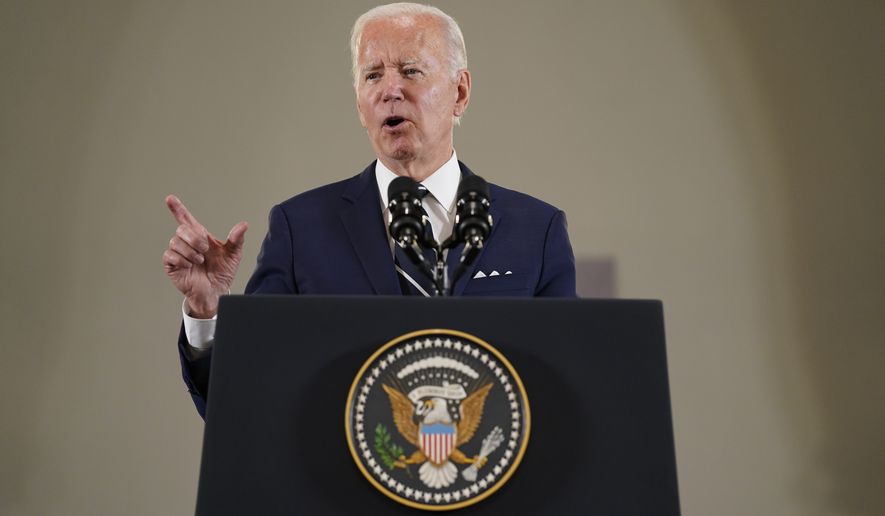President Biden faces a Monday deadline to forestall a freight train rail strike that could further aggravate the nation’s supply chain problems.
Railroads and union workers have been unable to reach an agreement on a new contract and the rail companies are now seeking intervention from the Biden administration, which is weighing the appointment of an arbitration board to recommend a settlement.
The unions and rail companies are at the end of a 30-day “cooling-off” period that ends Monday, and without presidential intervention, a strike could be imminent.
One of the 12 unions involved in the labor dispute, the Brotherhood of Locomotive Engineers and Trainmen, made up of more than 57,000 locomotive engineers, conductors and brakemen and firemen, voted Tuesday to authorize a strike, and other unions are likely to follow absent a deal.
Unions want better pay and health care benefits and a restructuring of work scheduling.
Rail carriers, BLET union officials said, “have stonewalled” at the bargaining table and treated workers as unnecessary while hiring new ones off the street with no experience to fill vacant positions.
“In the end, the question of whether or not any of the rail industry’s Union-represented employees want to legally strike is secondary to what they truly want,” BLET National President Dennis R. Pierce said in a statement. “They want a contract with meaningful wage increases and good benefits. They want jobs that give them the ability to have a life outside of work.”
A rail strike would cause major disruptions in the nation’s supply chain and would be politically disastrous for the Biden administration, which is already suffering low approval ratings that stem from high inflation and gas prices.
It’s expected the Biden administration will appoint a Presidential Emergency Board as early as Monday to impose a settlement, but no announcement has been made yet.
Chamber of Commerce CEO Suzanne Clark urged Mr. Biden to appoint a board to help the two sides reach a voluntary agreement.
“The U.S. business community faces enormous challenges today from record inflation, labor shortages, and ongoing supply chain disruptions due to the COVID-19 pandemic,” Ms. Clark wrote. “Any breakdown would be disastrous for U.S. consumers and the economy, and potentially return us to the historic supply chain challenges during the depths of the pandemic.”
• Susan Ferrechio can be reached at sferrechio@washingtontimes.com.




Please read our comment policy before commenting.